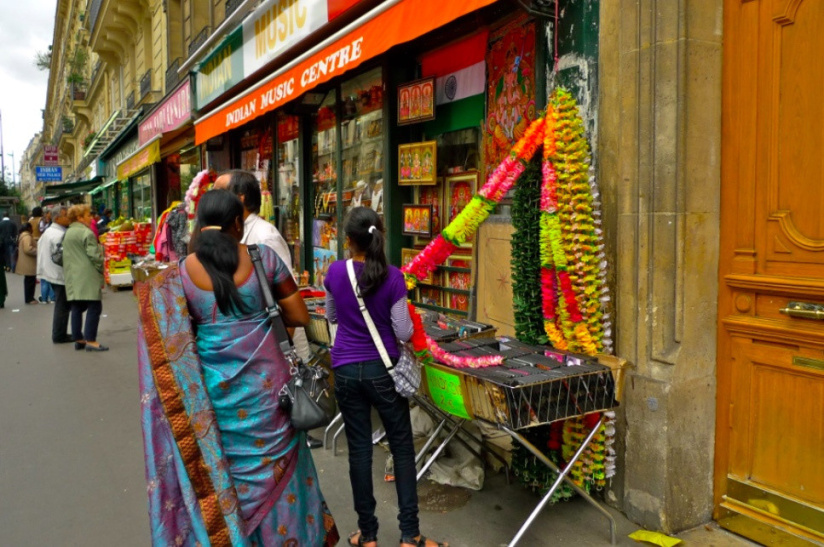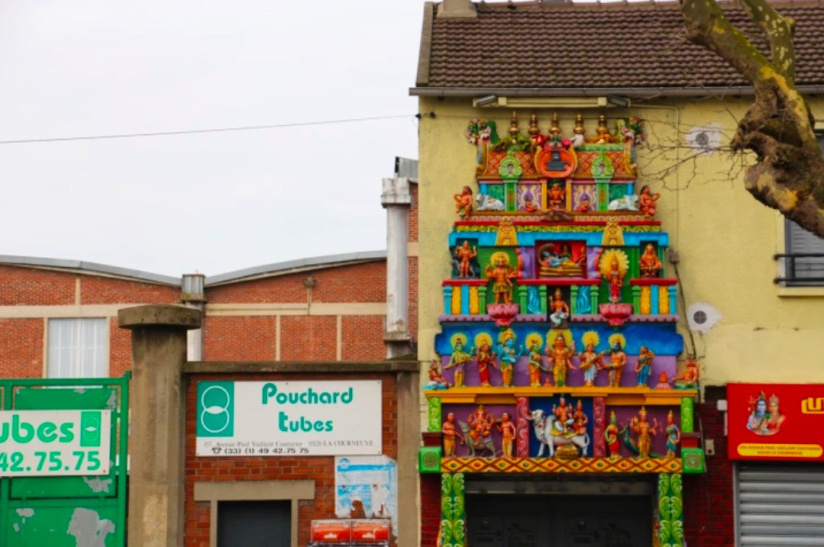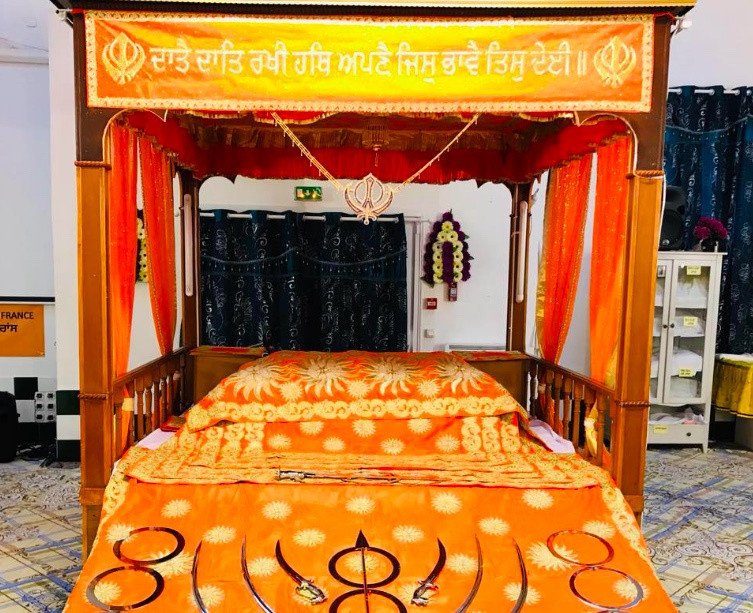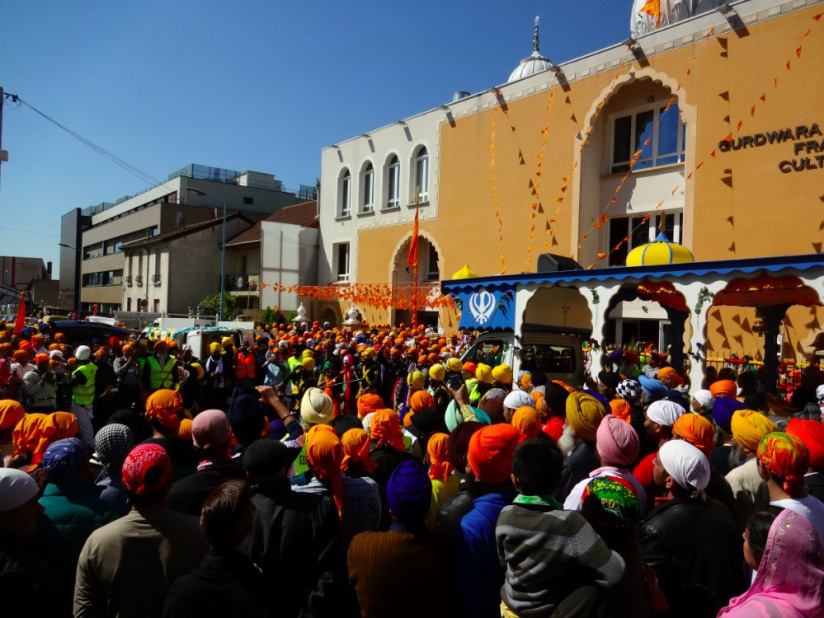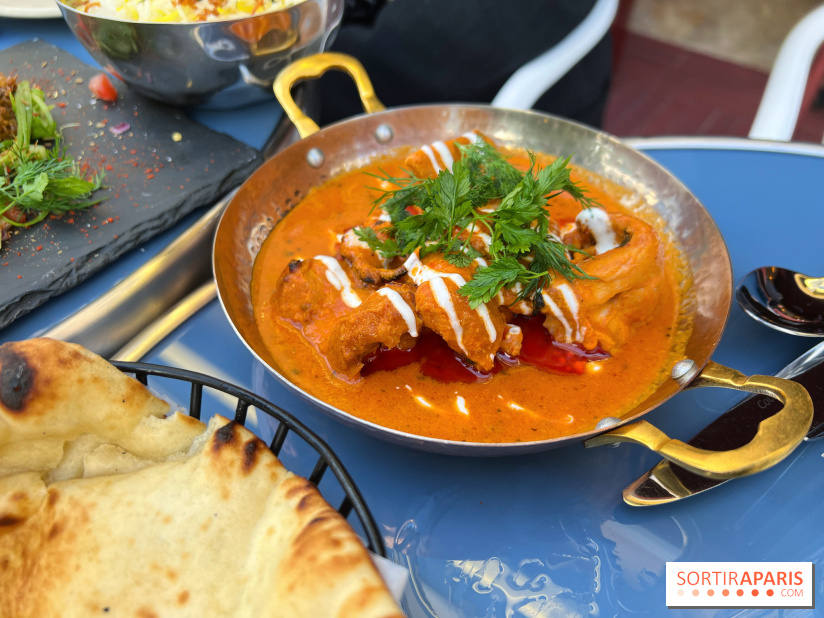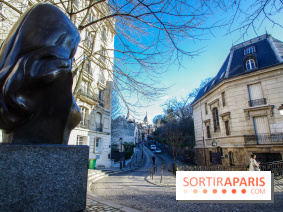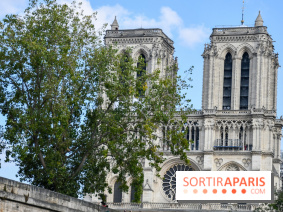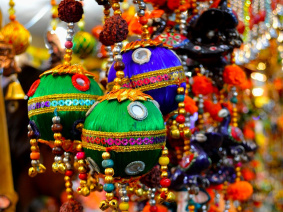The Diwali 2023 celebrations are fast approaching. On November 12, this great festival of light observed by the Indian people and Hindus promises to be as colorful as it is grandiose, not only in India but also in the cities and countries where the Indian diaspora can be found, and Paris is no exception.
While some people are already salivating at the thought of the traditional specialities that will be exchanged and savoured with their families, others intend to take advantage of this global celebration to discover or rediscover the capital's Indian heritage and sites. For while the presence of Indian culture in Paris may not be striking, it is not non-existent, as evidenced by certain districts, covered passages and several temples within the city and in the Ile-de-France region.
From the arrival of Indian maharajas, artists and intellectuals in the 19th century to take part in Paris's vibrant social and cultural life, to the settlement of gemstone merchants in the lower 9th arrondissement in the following century, to the Indians from Pondicherry who chose the popular 10th and 18th arrondissements to open stores and restaurants, Pakistani and Indo-Pakistani families who arrived in the 70s in Strasbourg Saint-Denis, Tamils from Sri Lanka and Bangladeshis, the communities of the Indian subcontinent are numerous in Paris, each with their own language - Urdu, Punjabi, Tamil - their own script, their own religion - Hinduism, Sikhism, Buddhism.
Today, the shops have shifted to the Gare du Nord and La Chapelle areas, revealing a truly cosmopolitan, motley neighborhood known as Little Jaffna or Little India.
Le passage Brady
Between 46 rue du Faubourg-Saint-Denis and 33 boulevard de Strasbourg
Paris 10
Famous for its hairdressers, Indo-Pakistani restaurants and grocery stores selling Indian products, the Passage Brady is the first stop on your stroll. This covered gallery, opened in 1828, is home to a number of shops, some of which date back to the 1970s.
Among them,Velan grocery is a true institution of this covered passage, inaugurated in 1972 by Antoine Ponnoussamy, a native of Pondicherry. Incense, spices, chutney, but also fresh fruit and vegetables, flower necklaces, stoles, statuettes and jewelry, the grocery store offers all the flavors, scents and colors of India in one and the same place.
La Chapelle "Little Jaffna"
Paris 18
A little further north, you'll come across the La Chapelle district, commonly known as the Indian quarter of Paris but in reality just as Sri Lankan, nestled between the rails of the Gare du Nord and the Gare de l'Est. Since the waves of Buddhist Sri Lankan and Hindu Tamil immigration at the time of Sri Lanka's civil war in the '80s, the district has been transformed into a veritable Little India. From the La Chapelle metro station to rue Louis Blanc, via rue Perdonnet and rue Cail, the colorful storefronts abound, like so many invitations to travel.
Women's boutiques, in particular, offer a wide range of clothing, jewelry, beauty products and textiles. Grocery stores are also legion, as are pastry shops, florists, jewelry and incense stores.
Sri Manicka Vinayakar Alayam Temple, the "Ganesh Temple"
17 Rue Pajol
Paris 18
Cross Boulevard de la Chapelle to discover the Sri Manicka Vinayakar Alayam temple, or simply Temple Ganesh, at number 17 Rue Pajol, dedicated to the elephant-headed deity. A lavishly decorated Hindu place of worship, it was founded in 1985 by Vaithilingam Sanderasekaram at an earlier address, before moving to its present location. This Hindu temple, which is the oldest in the capital and the first in France, is mainly frequented by Hindus from Sri Lanka, the West Indies, Mauritius and Reunion Island, but is in fact open to all, provided they respect traditions - remove shoes, show respect, don't take photographs inside.
You'll have to cross the threshold of the Ganesh Temple to discover the many statues, particularly those of the god Ganesh, and share a vegetarian meal with the believers, in the purest South Indian and Asian tradition. Every last Sunday in August, the Ganesh Festival parade starts from this place of worship and continues through the 18th arrondissement.
Temple Sivan Parvathi
159 avenue Paul Vaillant Couturier
93120 La Courneuve
Let's continue our walk on the other side of the ring road. Head for La Courneuve in Seine-Saint-Denis, home to numerous communities from the Indian sub-continent, in particular Sri Lankan, Pakistani and Indian families who settled here in the 90s - rents being lower than in the capital - as well as a few Sikh families from Punjab.
It's impossible to miss the Sivan Parvathi temple, set up along the road in the heart of La Courneuve, with its magnificent, colorful facade adorned with figures from Hindu beliefs, particularly Shiva. Here, too, it's possible to attend pooja, the daily religious ceremonies, provided certain requirements are met. It's also an opportunity to share this moment with the Tamil Hindu community. Take a look at this detailed description of the temple!
Gurdwara Baba Makhan Shah Lubana Temple
14, avenue Jean Jaurès
93350Le Bourget
Still a temple, but a different culture, language and worship at the Sikh temple in Le Bourget, just a 15-minute walk away. Here, Sikhs from northern India welcome the curious to their temple, where traditional chants resound in the gurdwara, the prayer area open to all. In a more sober setting than the two previous Hindu temples, it's possible to attend a ceremony and share a meal, all together.
The Gurdwara Singh Sabha Temple
16, rue de la Ferme
93000 Bobigny
This is the largest Sikh temple in Seine-Saint-Denis, but also the first gurdwara to open in France, in the 2000s. With its oriental style and three domes, the Gurdwara Singh Sabha temple is open to all, devotees and visitors alike. On the upper floors, visitors can enjoy a traditional Panjabi meal and devote themselves to prayer in the dedicated hall, which houses the holy book known as Guru Granth Sahib. Guided tours of the temple and Sikhism are organized on the occasion of Vasakhi and Heritage Days.
The Vasakhi festival parade starts from this place of worship and continues through the streets of Bobigny, organized to celebrate the birth of the Khalsa order on April 14, 1699, which institutionalized the rule of the Five Ks - the five sacred attributes of the Sikhs. On the program: demonstrations of Sikh martial arts, singing procession, parade of the chariot carrying the sacred book and a traditional vegetarian meal.
Talking of meals, it's hard to walk this far! To keep you in the mood, Paris is full of Indian restaurants offering a variety of traditional and authentic dishes, from classics like chicken curry and biryani to lesser-known Indian regional dishes.
As you can see, although the capital doesn't really have any major Indian historical monuments, it does offer a rich and varied immersion in Indian culture, through its restaurants, its places of worship, its neighborhoods where the different communities of the Indian subcontinent rub shoulders and its major celebrations such as Diwali, the Ganesh festival and the Vasakhi festival. A true voyage without leaving Paris!




